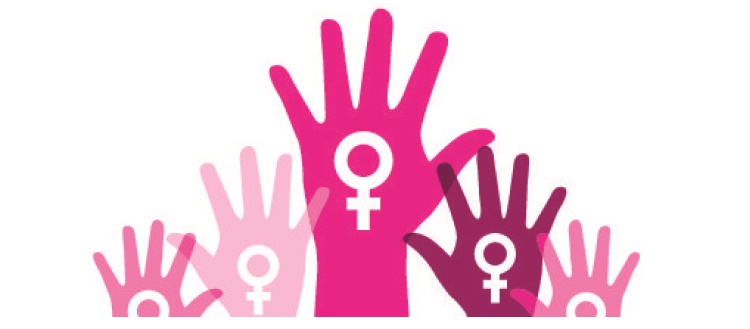Listening to the past

Where next for the “veritable hotbed of feminism”?
St Andrews feminists across generations gathered at the University of St Andrews today (Wednesday 21 November 2018) to celebrate the history of St Andrews feminism. The event united founding members of the St Andrews Women’s Liberation Movement, current members of the St Andrews Feminist Society, members of the University’s newly founded St Andrews Institute for Gender Studies and of the wider University community to acknowledge St Andrews as a place where important ideas developed, which went on to have much wider reach.
Dr Sarah Browne helped to tell the stories of the St Andrews women who challenged the idea that feminism belonged in an urban metropolis, and took advantage of St Andrews’ small scale to create a radical network and strong bonds that helped Scottish feminism to develop its own sense of comradery and identity.
Using oral history and archive research Dr Browne revealed St Andrews as a location described by one male student in student newspaper Aien (11 November 1970) as a “veritable hotbed of feminism”; where women described by counterparts in Dundee as having a reputation as “troublemakers” gave rise to ideas and activism that impacted on feminism, higher education and society more widely.
Dr Browne suggested three lessons we should learn from this history:
- Women’s place in higher education has not always been a given – barriers to participation need to be acknowledged and the women who campaigned for change remembered.
- The importance of space – the St Andrews Women’s Liberation Movement opened up spaces for women on campus, for example campaigning for female access to the Students’ Association beer bar.
- Feminist campaigns have often been met with disrespect and intimidation – progress is often seen as a threat to the way things have always been.
Members of the 1970s St Andrews Women’s Liberation Movement described how they discovered more about themselves and about the world by helping each other articulate how they’d felt all along about injustice. The University’s partnership with the College of William and Mary, USA also played a part – empowering study-abroad students to encounter and import new perspectives on sexism and women’s rights.
Principal and Vice-Chancellor Professor Sally Mapstone joined in recollections of the sounds and character of 1970s feminism, including smoking, drinking Guinness, wearing capes and Annelo and Davide dance shoes, and the Fairport Convention’s Who Knows Where the Time Goes.
She said: “I think we should all take great pride that the engaged tradition of promoting women’s issues continues so powerfully here today. I don’t believe in the efficacy of mandates or demands though I entirely understand why people generate them. I have spent a lifetime using argument, dialogue, and leading by example, and I believe in those trusted methods. But believe me I share the passion with which our students lobby now and I value it.”
Members of the 1970s St Andrews Women’s Liberation Movement stressed the importance of continuous discussion in shaping how we chose to live and warned that progress is fragile. Continuing effort is required to guard against backlash and fear.
Their advice to the next generation: “Do the thing that’s important to you, whatever it is. You’ll remember it, and in years from now it might turn out to have been important.”
Category Public interest stories